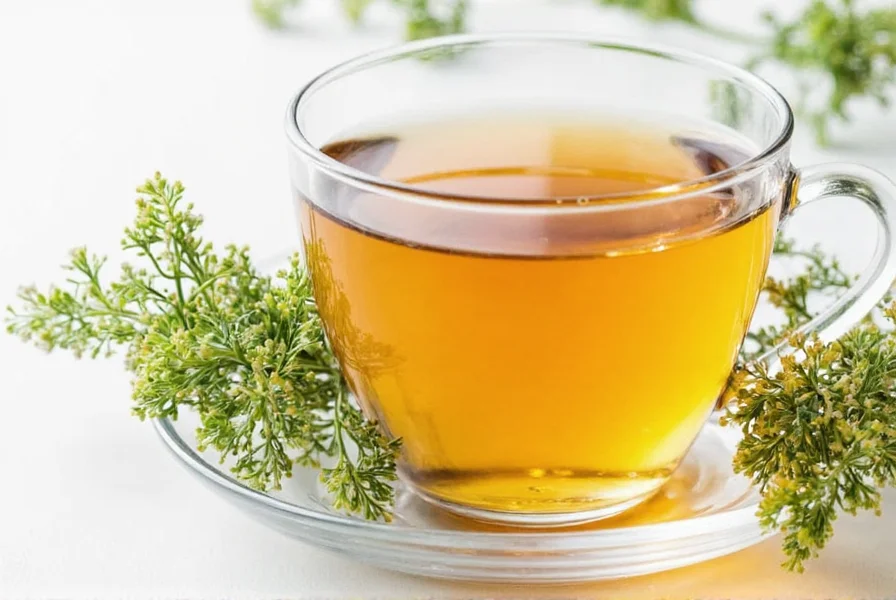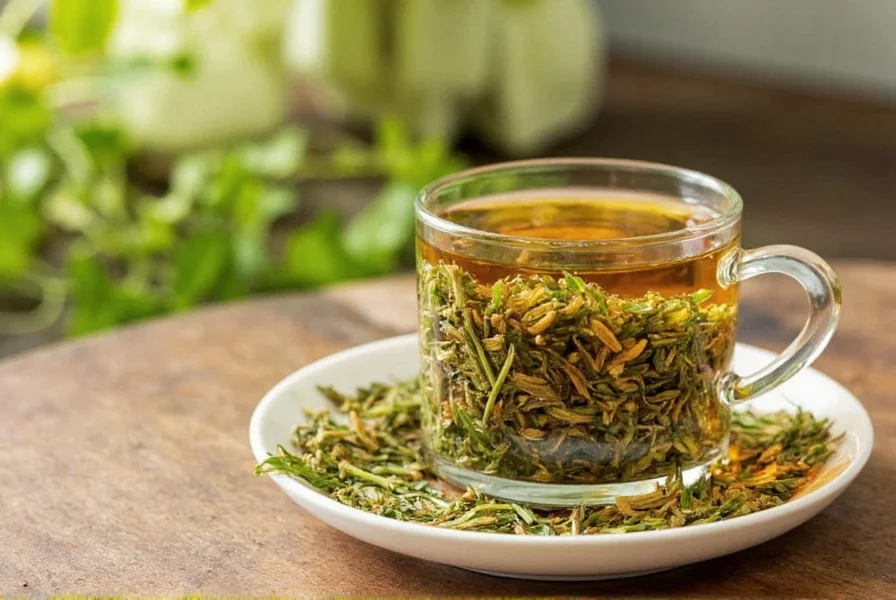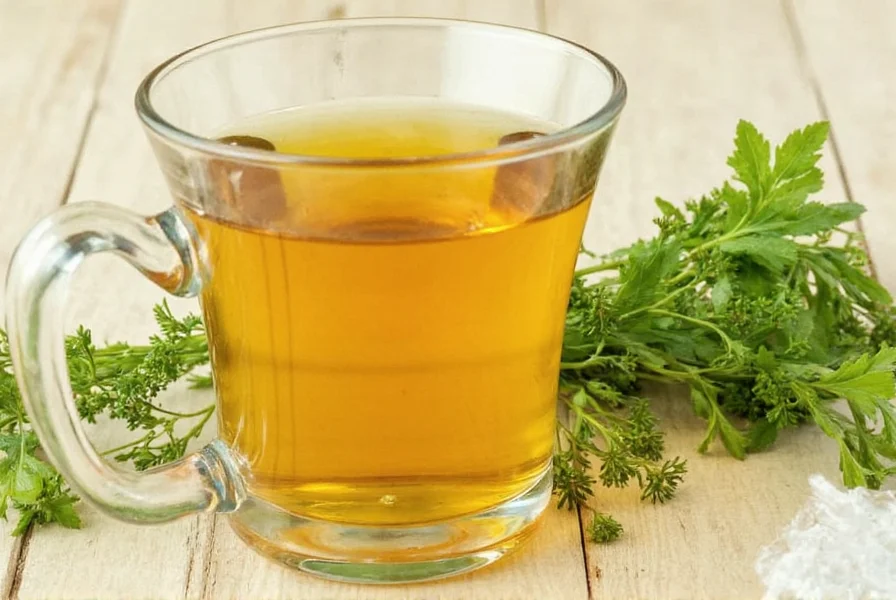Often confused with cilantro (the leafy part of the same plant), coriander tea specifically uses the dried seeds, which offer distinct health properties compared to the fresh leaves. This traditional remedy has been used for centuries across Mediterranean, Indian, and Middle Eastern cultures for supporting digestive health and overall wellness.
Understanding Coriander Tea and Its Origins
Coriander tea comes from the dried seeds of Coriandrum sativum, the same plant that produces cilantro leaves. While cilantro refers to the fresh green leaves, coriander specifically denotes the round, beige seeds that develop after the plant flowers. These seeds contain essential oils, flavonoids, and other bioactive compounds that contribute to the tea's therapeutic properties.
Historically, ancient Egyptian, Greek, and Ayurvedic medicine practitioners utilized coriander seeds for digestive support and as a natural remedy for various ailments. The seeds were so valuable that they've been found in archaeological sites dating back to 5000 BC. Today, coriander tea remains a popular herbal infusion worldwide, particularly in regions where traditional medicine practices remain influential.
Nutritional Composition of Coriander Seeds
The health benefits of coriander tea stem from the rich nutritional profile of coriander seeds. When steeped properly, many of these beneficial compounds transfer into the tea.
| Nutrient | Amount per 100g Seeds | Primary Benefits |
|---|---|---|
| Linalool | 60-70% | Anti-inflammatory, antioxidant properties |
| Terpenes | 10-15% | Digestive support, antimicrobial effects |
| Flavonoids | Moderate | Antioxidant protection, cellular health |
| Dietary Fiber | 27g | Digestive regularity, gut health |
| Iron | 17mg | Blood health, oxygen transport |

Evidence-Based Health Benefits of Coriander Tea
Research supports several health benefits associated with regular consumption of coriander tea, though more extensive human studies are needed in some areas.
Digestive Health Improvement
One of the most well-documented benefits of coriander tea relates to digestive health. The tea acts as a carminative, helping to relieve gas, bloating, and abdominal discomfort. A 2017 study published in the Journal of Ethnopharmacology found that coriander seed extract demonstrated significant anti-spasmodic effects on intestinal muscles, which explains its traditional use for soothing digestive upset.
For those seeking natural remedies for indigestion, drinking coriander tea after meals may help stimulate digestive enzymes and promote smoother digestion. This makes it particularly valuable as a post-meal digestive aid in traditional medicine systems.
Blood Sugar Regulation
Emerging research suggests coriander tea may help with blood sugar management. Animal studies have shown that coriander seed compounds can enhance insulin secretion and improve glucose metabolism. While human trials are limited, preliminary evidence indicates potential benefits for those managing prediabetes or type 2 diabetes.
When preparing coriander tea for blood sugar control, using freshly crushed seeds and allowing adequate steeping time (10-15 minutes) appears to maximize the extraction of beneficial compounds. However, it should complement—not replace—standard diabetes management approaches.
Anti-Inflammatory and Antioxidant Effects
The linalool and other terpenes in coriander seeds provide significant anti-inflammatory benefits. Chronic inflammation underlies many modern health conditions, and incorporating anti-inflammatory foods and beverages like coriander tea may offer protective effects.
Research published in Food Chemistry demonstrated that coriander seed extracts exhibit strong antioxidant activity, helping to neutralize free radicals that contribute to cellular damage and aging. Regular consumption of coriander tea may therefore support overall cellular health and reduce oxidative stress.
How to Prepare Coriander Tea Properly
Proper preparation maximizes the health benefits of coriander tea while ensuring optimal flavor. Here's a simple method for making effective coriander tea:
- Measure 1-2 teaspoons of whole coriander seeds per cup of water
- Gently crush the seeds using a mortar and pestle (this releases more essential oils)
- Bring fresh, filtered water to just below boiling (around 200°F or 93°C)
- Pour water over crushed seeds in a teapot or heat-resistant container
- Cover and steep for 8-12 minutes (longer steeping extracts more compounds but may increase bitterness)
- Strain the tea into your cup
- Optional: Add lemon, honey, or a slice of ginger for enhanced flavor and additional benefits
For those interested in maximizing the digestive benefits of coriander tea, adding a small piece of fresh ginger during the steeping process creates a powerful digestive tonic. The combination of coriander and ginger works synergistically to support healthy digestion.

Recommended Consumption Guidelines
While coriander tea is generally safe, following appropriate consumption guidelines ensures you receive maximum benefits without potential side effects:
- Optimal daily amount: 1-3 cups per day
- Best time to drink coriander tea for digestion: 15-20 minutes after meals
- Ideal temperature: Warm, not scalding hot (to preserve delicate compounds)
- Duration of use: Can be consumed regularly as part of a balanced diet
Those specifically using coriander tea for blood sugar management may benefit from drinking one cup before main meals. However, individual responses vary, so monitoring your body's reaction is advisable when first incorporating this tea into your routine.
Potential Side Effects and Precautions
Coriander tea is generally well-tolerated, but certain precautions should be considered:
- Allergic reactions: Rare, but possible, especially in individuals allergic to other plants in the Apiaceae family (like carrots or celery)
- Medication interactions: May interact with blood-thinning medications due to vitamin K content; consult your healthcare provider if taking diabetes medications
- Pregnancy considerations: Generally considered safe in moderate amounts typically used for tea, but pregnant women should consult their healthcare provider before regular consumption
- Excessive consumption: Drinking extremely large quantities (more than 5-6 cups daily) may cause digestive upset in sensitive individuals
Unlike some herbal remedies, coriander tea doesn't typically cause drowsiness, making it suitable for daytime consumption. However, if you experience any adverse reactions, discontinue use and consult a healthcare professional.
Coriander Tea in Context with Other Herbal Remedies
When considering coriander tea versus other popular herbal teas, it offers unique benefits while complementing rather than competing with other options. Unlike peppermint tea, which can relax the lower esophageal sphincter (potentially problematic for those with GERD), coriander tea generally doesn't cause this issue while still supporting digestion.
Compared to ginger tea, which is more potent for nausea relief, coriander tea provides gentler digestive support with additional potential benefits for blood sugar regulation. Many traditional medicine systems actually combine these herbs for synergistic effects.
For those exploring natural approaches to digestive wellness, understanding how coriander tea fits within a broader herbal strategy helps optimize its benefits without creating unnecessary restrictions in your herbal regimen.
Conclusion: Integrating Coriander Tea into a Healthy Lifestyle
Coriander tea represents a time-tested herbal remedy with growing scientific support for its digestive and metabolic benefits. When prepared properly from high-quality seeds and consumed in appropriate amounts, it can be a valuable addition to a health-conscious lifestyle.
While not a miracle cure, this simple herbal infusion offers a gentle, natural approach to supporting digestive health and potentially aiding blood sugar management. As with any natural remedy, consistency matters more than intensity—regular moderate consumption yields better results than occasional heavy use.
By understanding both the evidence-based benefits and realistic limitations of coriander tea, you can make informed decisions about incorporating this traditional remedy into your wellness routine.
Frequently Asked Questions
What are the primary health benefits of drinking coriander tea regularly?
Regular consumption of coriander tea primarily supports digestive health by reducing bloating and gas, while also offering anti-inflammatory benefits and potential blood sugar regulation effects. The tea contains linalool and other compounds that act as natural carminatives and antioxidants, making it particularly valuable as a post-meal digestive aid.
How does coriander tea differ from cilantro tea?
Coriander tea is made from the dried seeds of the Coriandrum sativum plant, while "cilantro tea" would theoretically be made from the fresh leaves (which are rarely used for tea). The seeds contain different compounds than the leaves, with coriander seeds being higher in linalool and having more documented digestive benefits. The seeds produce a warm, citrusy, slightly spicy flavor when brewed, whereas cilantro leaves would create a more herbaceous, grassy infusion.
Can coriander tea help with weight management?
While coriander tea isn't a weight loss solution, it may support weight management efforts indirectly. The tea can improve digestion and reduce bloating, which may help with comfort during dietary changes. Some preliminary research suggests compounds in coriander seeds might influence metabolism, but human studies are limited. Drinking coriander tea as part of a balanced diet and healthy lifestyle may provide modest supportive benefits for weight management.
How long should I steep coriander tea for maximum benefits?
For optimal extraction of beneficial compounds, steep crushed coriander seeds for 8-12 minutes in water just below boiling (around 200°F or 93°C). Steeping for less time may not extract sufficient active compounds, while longer steeping (beyond 15 minutes) can increase bitterness without significantly enhancing benefits. Covering the tea while steeping helps retain the volatile essential oils that provide many of the therapeutic effects.
Are there any medication interactions I should be aware of with coriander tea?
Coriander tea may interact with certain medications, particularly blood-thinning drugs due to its vitamin K content. It might also enhance the effects of diabetes medications, potentially causing blood sugar to drop too low. If you're taking sedatives, consult your healthcare provider as coriander may have mild calming effects. Always discuss herbal tea consumption with your doctor if you're on prescription medications, especially for chronic conditions.











 浙公网安备
33010002000092号
浙公网安备
33010002000092号 浙B2-20120091-4
浙B2-20120091-4